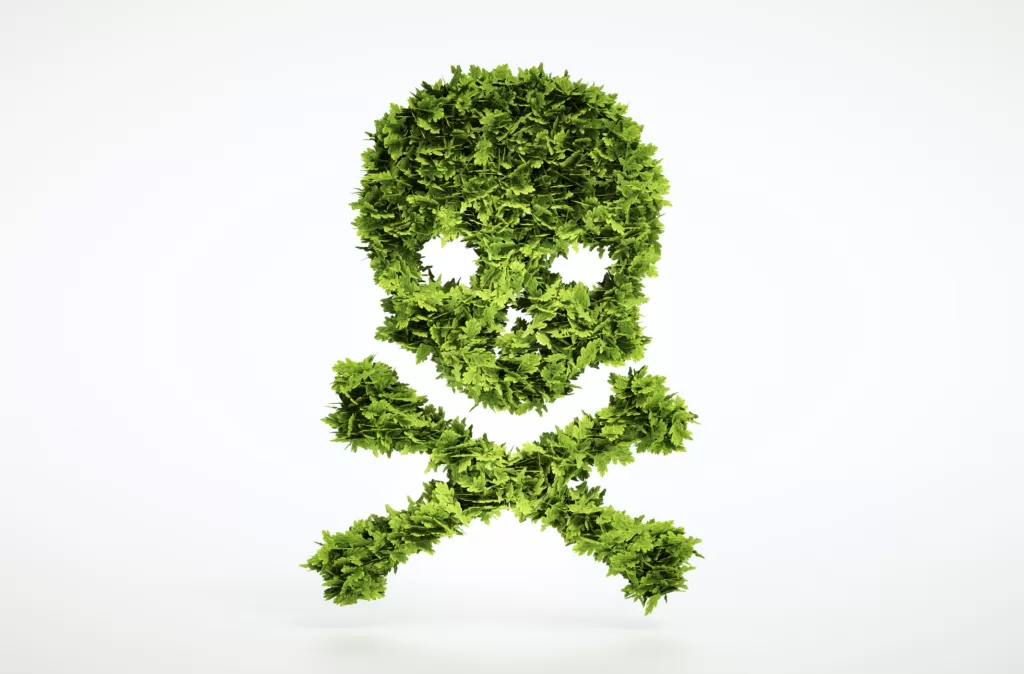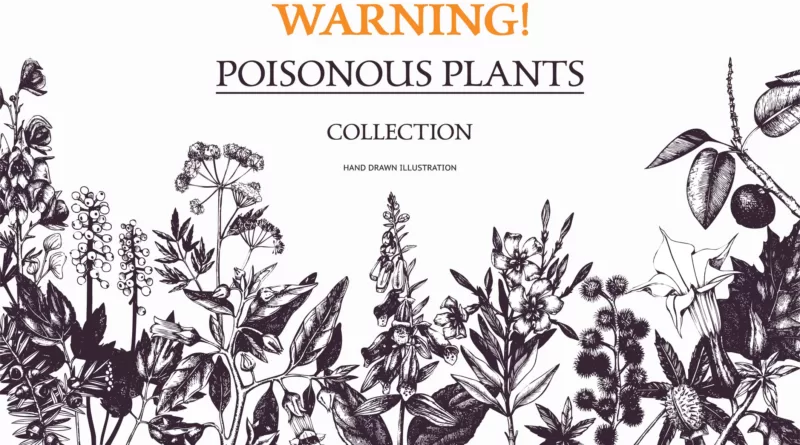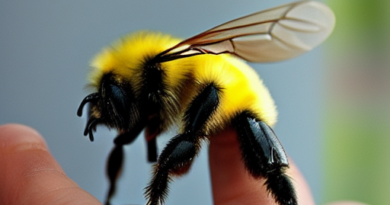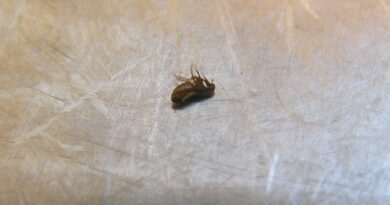Poisonous Plants For Goats. 110 Names listed
Goats are commonly used as a food source, whether it be milk, cheese or even meat. But did you know that goats also have to watch out for their health? That’s right – certain types of plants can be dangerous and even poisonous to goats if they eat them.
Knowing what these plants are is essential to keep your goats healthy and safe. This blog post will discuss common poisonous plants for goats. They can cause and ways to protect your herd from accidental ingestion. So let’s dive into the important topic of poisonous plants for goats.
What are some Common Poisonous Plants for Goats and their Symptoms of Poisoning?
Plant poisoning is an unfortunately common problem when it comes to goats. Planted parts toxic to goats include lupine, nightshade, loco weed, bracken fern, ragwort and laurel.
Symptoms of poisoning can range and include irritation of the skin around the mouth. Eyes, drooling, seizures and even death – depending on the severity of the exposure. As with other animals, it’s important to know what plants are growing in your pasture. So you can identify potentially dangerous ones early on.
With a little knowledge about poisonous plants and how to keep your goats safe. You can ensure that your goat stays healthy and happy.
There are several different types of plants and vegetation that can be toxic or poisonous to goats. These include but are not limited to: yew, ivy, foxglove, nightshade, and oleander. If a goat ingests any of these plants. It may experience symptoms such as lethargy, vomiting, diarrhoea, disorientation, seizures and even death in extreme cases.
How do I Prevent my Goats from Eating Poisonous Plants?
Poisonous plants for goats can range from wild parsnips and buttercups to common lawn clovers. To prevent your goats from eating these potentially toxic plants. It is important to know what types of vegetation grow in your area. Keep a close eye on your herd while they are out grazing.
Giving them plenty of good quality hay and supplementing their diet with a balanced mineral mix should help to discourage them from munching on things they shouldn’t. Furthermore, if there are certain plants. You want to prohibit entirely, create barriers such as fences or designate off-limits areas. With the appropriate steps taken ahead of time. You’ll have peace of mind that your goats won’t consume something that could make them ill.

What to do if you think your Goat has Eaten a Poisonous Plant
If you think your goat has eaten a poisonous plant. The best thing to do is identify the specific plant and contact a veterinarian immediately. Poisonous plants for goats come in many shapes, sizes, colours, and tastes. Poison hemlock plants can look like carrots to goats so they are tempted to eat them. Goats can often smell other toxic plants like nightshade or oleander, so avoid them.
Knowing which plants are toxic and keeping your goats away from them is essential to their safety. Once you have identified the plant in question. Try to contact a professional immediately for advice on how to proceed.
How to Treat a Goat that a Plant has Poisoned
Poisoning in goats is often caused by consuming poisonous plants, such as Poison Hemlock and Poison Ivy. When a goat has been poisoned, the first thing to do is to isolate it from the other animals. As Poison Hemlock and Poison Ivy have the potential to spread through contact.
After this, it is important to identify what type of plant the goat was poisoned by so an adequate treatment plan can be developed. Suppose the plant consumed is Poison Hemlock or Poison Ivy. In that case, Veterinarians may advise flushing out their system with a mild saline solution, monitoring their heart rate, and inducing vomiting.
Other toxic plants, such as Water Hemlock, may require different treatment plans. So professional advice will be beneficial in recovery.
Some safe Plants to Feed Your Goats
Goats can be picky eaters but love to graze in the pasture. When choosing I safe plant to feed your goats. It is important to be aware of any plants that could be poisonous.
Some safe plants for goats include clover, alfalfa, timothy, orchard grass, wheatgrass and brome grass. Avoid giving your goats black nightshade, wild cherry, or another potentially poisonous plant. If you’re unsure about the safety of a particular plant, speak with your local vet before feeding it to your goats.
| Alkaloid Containing Plants | Cyanogenetic Plants | Photosensitizing | Toxic Plant | Saponins |
|---|---|---|---|---|
| Lobelia | Leucothoe | Rape | Cocklebur | Purple Sesban |
| Larkspur | Laurel | St. John's Wort | Pine Trees | Coffee Weed |
| Jimson Weed | Kafir | klamath Weed | White Cohosh | Bagpod |
| Indian Poke | Johnson Grass | Goat Weed | Clover | Rattle Box |
| Indian Hemp | Ivy | Buck Wheat | Downy Broome Grass | Soapwort |
| Horse Nettle | Indian Hemp | Sand Bur | ||
| Hellebore | Horse Nettle | Spurge | ||
| Fume Wort | Hemp | Snakeberry | ||
| False Jessamine | Elderberry | Lobelia | ||
| False Hellebore | Dogbane | Ground Ivy | ||
| Dicentra | Corn Cockle | Crowfoot | ||
| Death Camas | Choke Cherry | Buttercups | ||
| Crow Poison | Cherry | Baneberry | ||
| Aconite | Arrow Grass | Poke Weed | ||
| Allspice | Black Locust | Inkberry | ||
| Black Snake | Blue Cohosh | Squirrel Tail Grass | ||
| Root | Wild Hydranga | |||
| Bloodroot | Wild Black Cherry | |||
| Blue Cohosh | White Snakeroot | |||
| Boxwood | Velvet Grass | |||
| Celandine | Lily of the Valley | |||
| Wolfs Bane | Maleberry | |||
| Wild Parsnip | Marijuana | |||
| Varebells | Milkweed | |||
| Yellow Jessamine | Milo | |||
| Thorn Apple | Nightshade | |||
| Crotalaria | Olender | |||
| common poppy | Rhododendron | |||
| Sweet Shrub | Sevenbark | |||
| Staggerweed | Silver | |||
| Stagger Grass | Sneezewood | |||
| Spotted Water Hemlock | Suddan Brush | |||
| Spider Lily | Sorghum | |||
| Senecio | ||||
| Spotted Cowbane | ||||
| Rock Poppy | ||||
| Posion Rye Grass | ||||
| Posion Darnel | ||||
| Pink Death Camas | ||||
| Moonseed | ||||
| Monkshood | ||||
| Marjiuana |




